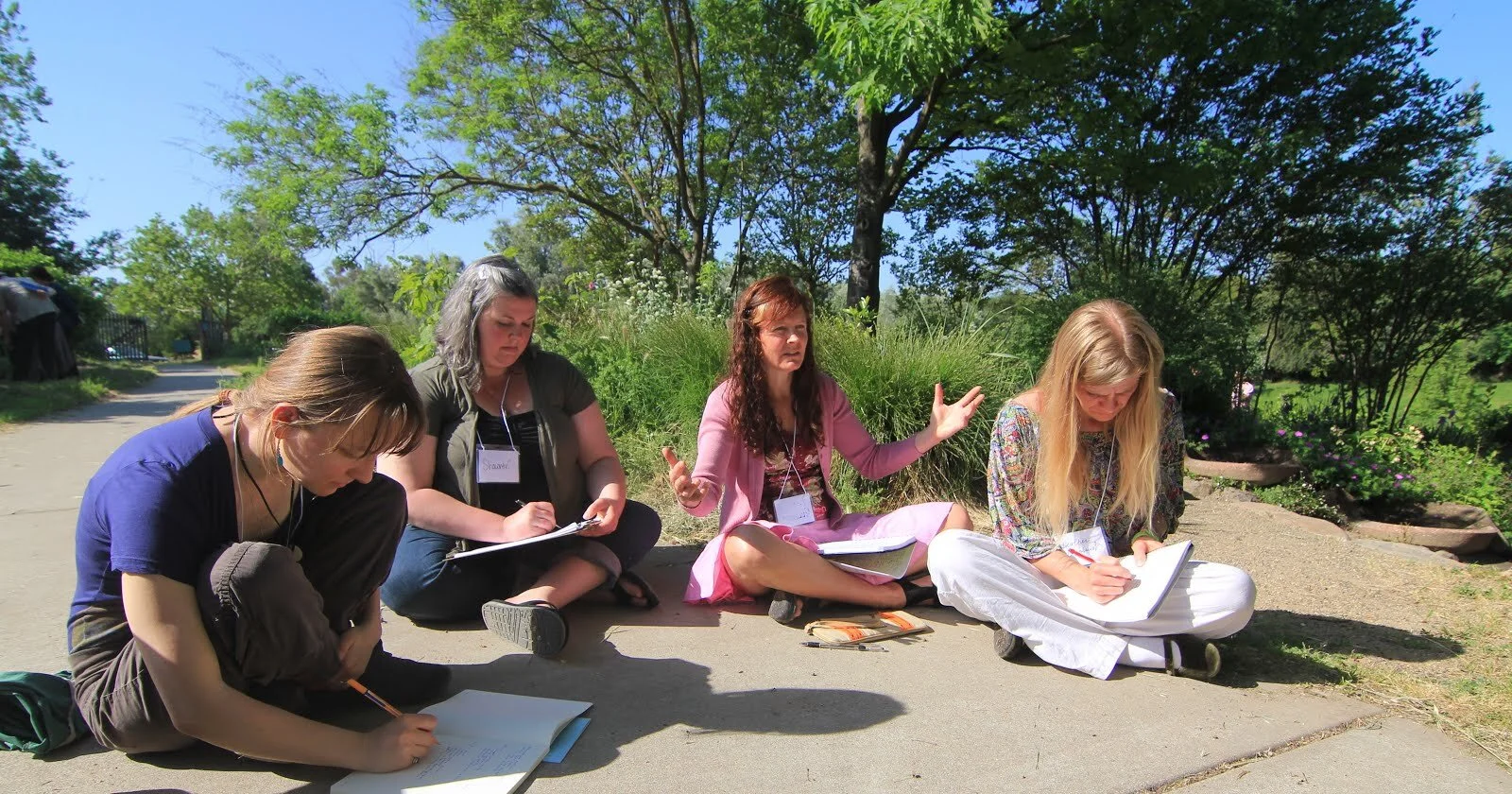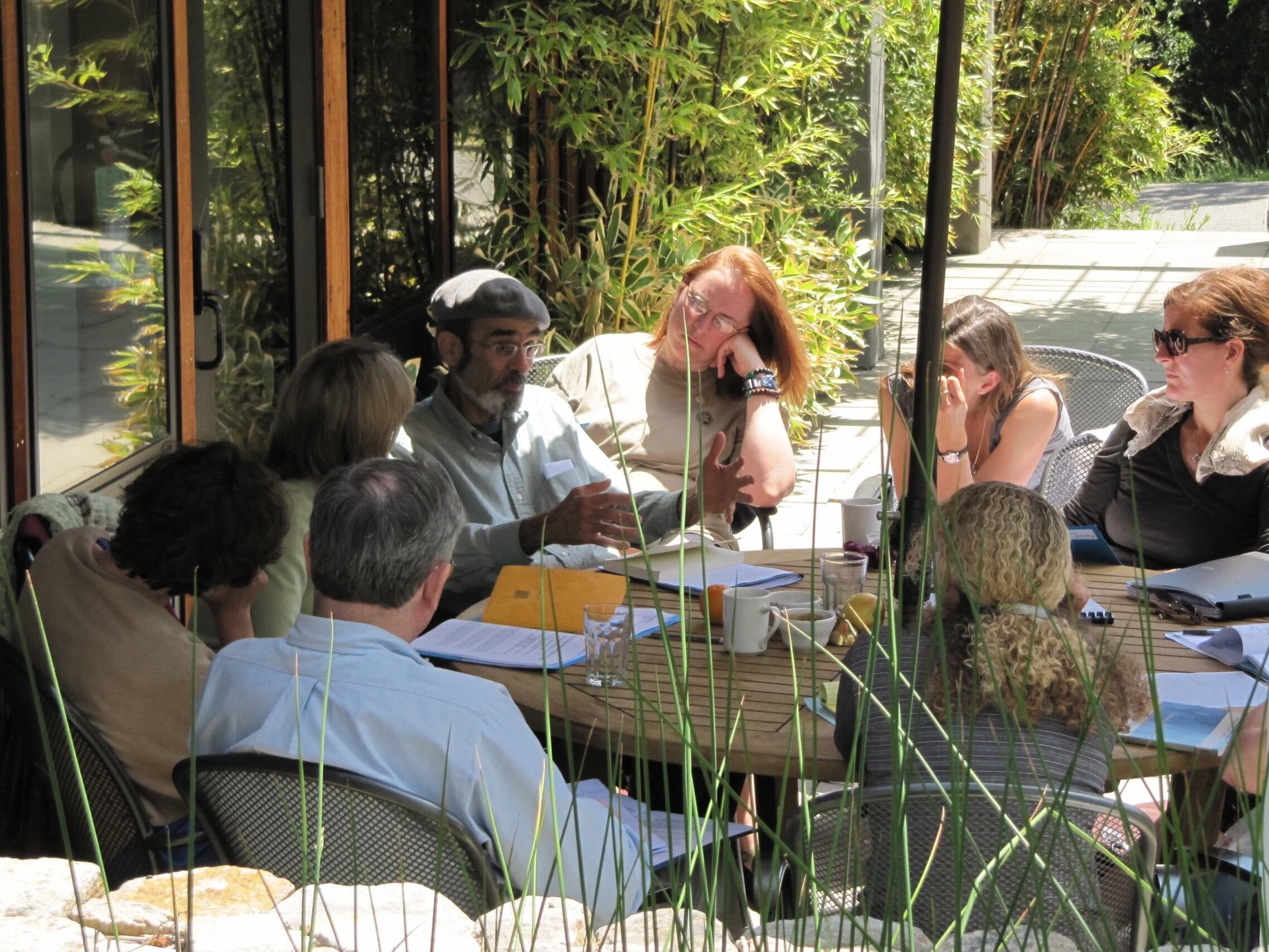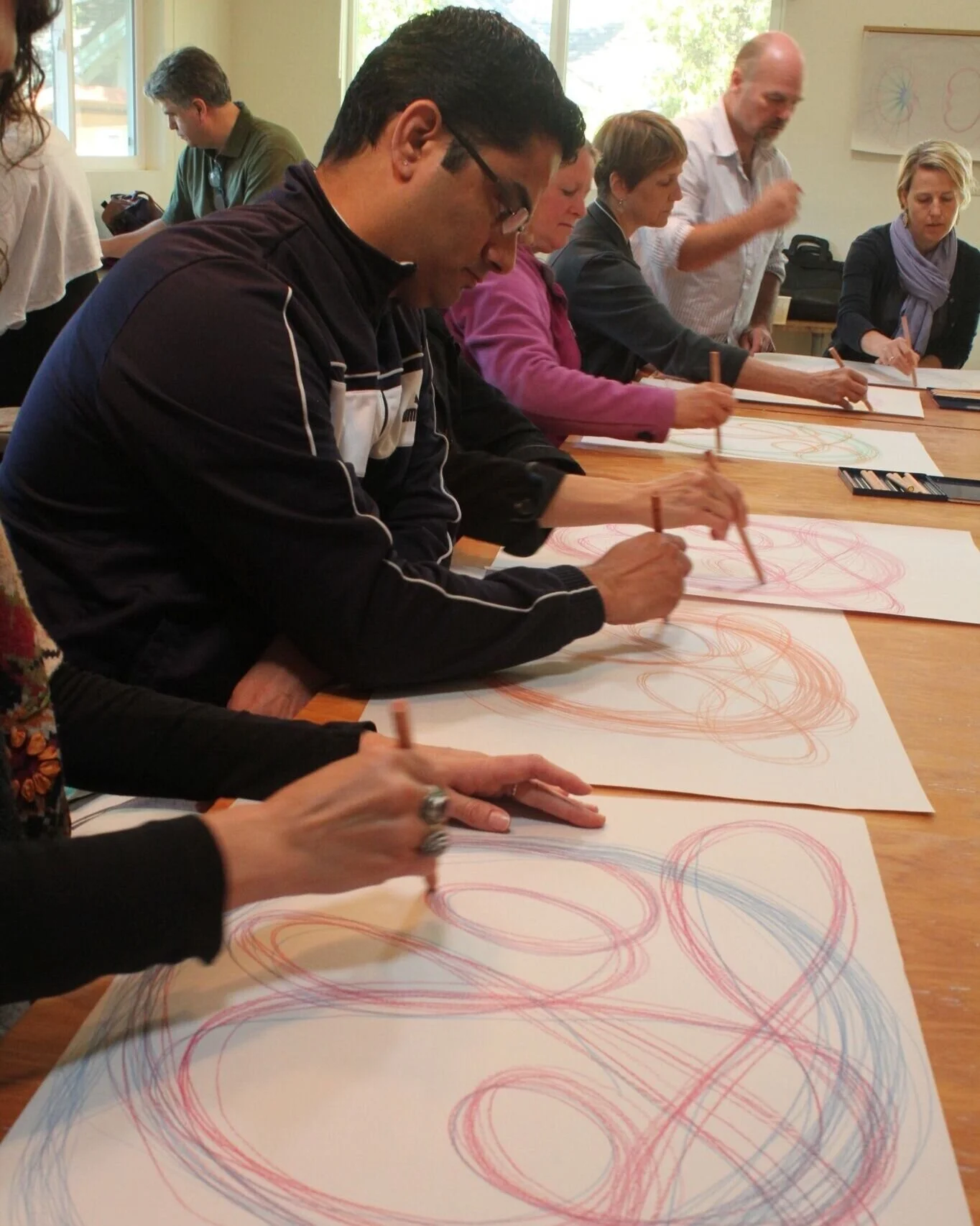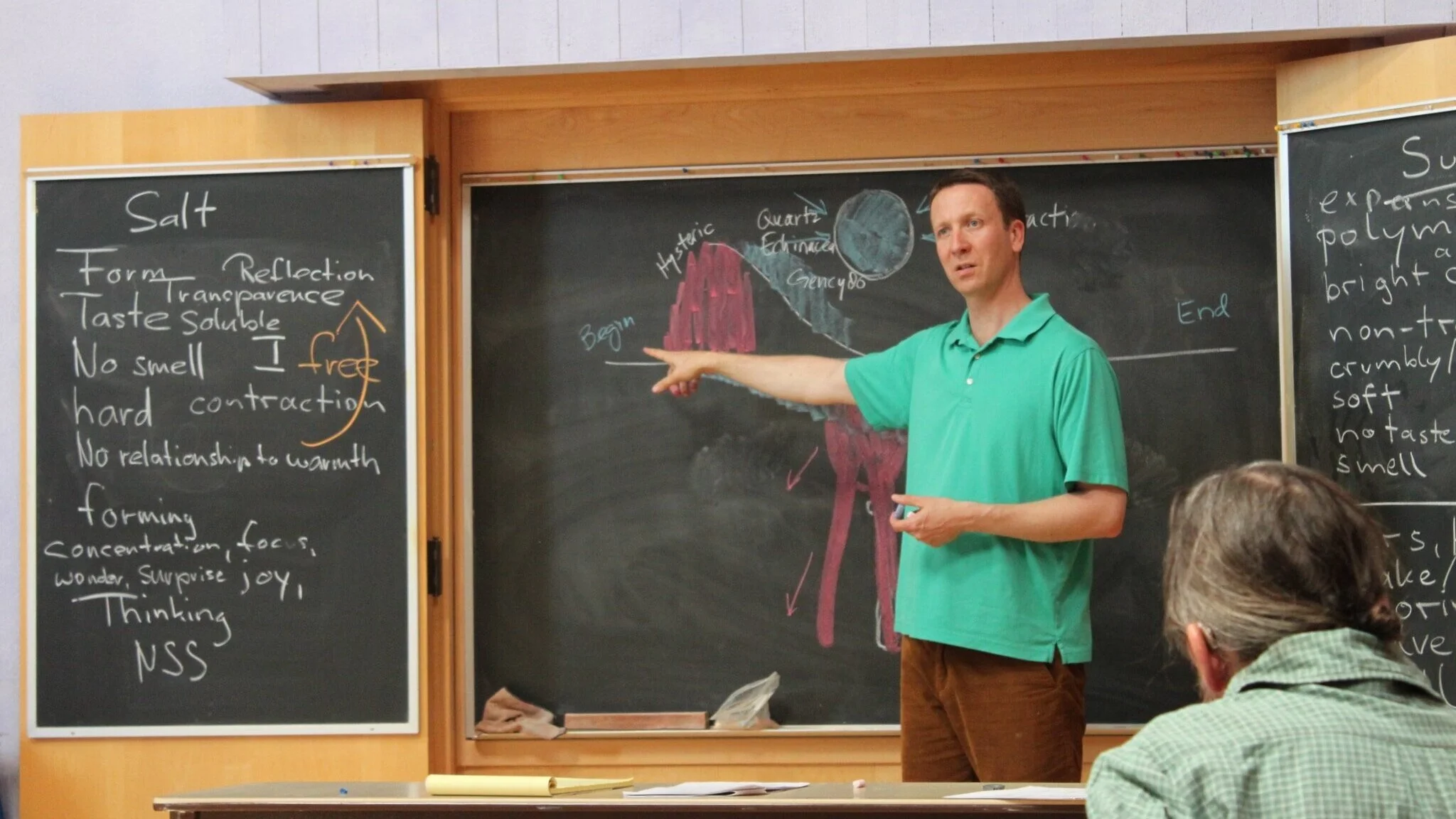
A Transformative Journey
Certification in Anthroposophic Medicine
Just as we evolve and develop individually and collectively throughout our lives, Anthroposophic Medicine evolves with us, through clinical research and practice
For some medical professionals, AM intrigues and stimulates their curiosity and willingness to explore. For others, it becomes their chosen path of personal and professional development. Anthroposophic Medical Training offers medical providers multiple levels of exploration and engagement.
For those who want to integrate AM more fully into their practice, PAAM offers the opportunity for Certification in Anthroposophic Medicine within 3 years, although students may take longer. Certification is an expression of commitment to the ongoing study and practice of a spiritual-scientific approach to healing.
During your training you will learn how to:
Establish a doctor-patient relationship based on dialogue, in which you perceive the patient as an individuality in his/her particular social environment
Establish a differentiated evaluation of the bodily, vital, emotional, mental and spiritual dimensions (also called the human fourfold nature)
Take into account the spiritual dimension of the human being in the treatment plan and where appropriate, possible and desired also discuss this with the patient
Treat the most common diseases encountered in general and specialist practice by means of or including Anthroposophic medications and therapies, and accompany, evaluate and adapt the therapy to the course of the illness
Develop a connection with nature and the cosmos, as well as with the substances at the origin of important Anthroposophic medications
Explain the scientific foundations and research methods of Anthroposophic Medicine and independently search the Anthroposophic-medical literature
And more
Certification in Anthroposophic Medicine: Process and Criteria
The following credentials can earn Certification in Anthroposophic Medicine through the American College of Anthroposophic Medicine (ACAM):
Medical doctors (MD) (U.S. and Canada)
Osteopathic doctors (DO)
Nurse practitioners (NP)
Physician assistants (PA)
The following credentials can earn Certification in Anthroposophic Medicine through the Society for Physicians of Anthroposophic Naturopathy:
Naturopathic doctors (ND) (U.S. and Canada)
Additional ACAM criteria are as follows:
The applicant shall be licensed to practice medicine as an MD/DO, NP, or PA within the United States, or licensed as an MD in Canada.
The applicant shall be of high moral and ethical standards and be in good standing in the general medical and Anthroposophic communities.
The applicant shall be committed to the ongoing development of the knowledge and practice of Anthroposophic medicine.
The International Core Curriculum • 1000 hours, five main areas
1. Contact Time (250 hours): Includes participation in the four-year cycle of the training conferences and the three-year Clinical Mentoring Program.
2. Independent Work (250 hours): To fulfill this requirement each applicant must submit a "learning portfolio", with a list of materials and subjects studied during the course of training.
3. Mentored Practice Hours (250 hours): Three years of participation in the PAAM Clinical Mentoring Program fulfills this requirement. Other equivalent clinical experience (such as work in an Anthroposophic inpatient facility) can also fulfill this requirement with proper documentation.
4. Project Work (150 hours): The project can be a publication or a paper. The topic is related to Anthroposophic Medicine and the trainee's current continuing medical education (CME); One of the three possible projects can be fulfilled through PAAM activities like webinar teaching, such as offering a presentation within the webinar series regularly offered by PAAM.
5. Three Case Studies Preparation (100 hours): The three case studies should show that the applicant is:
• familiar with the fundamentals of Anthroposophic Medicine and can independently make a diagnosis in the sense of Anthroposophic Medicine.
• Can develop a therapy and evaluate the course of the illness.
It is recommended that a list of references also be included with each case study. These three case studies should then be presented as part of the certification application.
Case guidelines and resources
Examination: The certification process finishes with a conversation about the applicant's case studies. This will generally last about sixty minutes and needs to be done with at least two members of ACAM, or other designated physicians. The examination will include discussion of at least one of the three cases that have been prepared.
The Board will review the application, request additional information or clarification as needed, and contact the applicant to schedule a time for discussion of the clinical cases. If certification is not granted, the Board will provide feedback to the applicant, including recommendations for additional study or training.
Beginning Steps
The Foundations of AM online series consists of a series of ten 60-minute online presentations. In these sessions you will be introduced to the philosophical and clinical foundations of Anthroposophic Medicine, while creating a clear pathway for you to bring these insights into patient care. Topics include:
dynamic observation methods
learning the language of nature
dynamic morphology and embryology
threefold physiologic patterns
the fourfold nature of the human being
exploring the deeper roots of health and illness
first steps in prescribing Anthroposophic medicines and therapies
meditative practices to support moral strength and practitioner health
integrative practice management tools and sharing of successful practice models
Clinical Mentoring Program matches students with mentors who are certified in AM and actively in practice. The program consists of monthly 1:1 meetings between student and mentor, working through clinical cases and questions related to the practical application of Anthroposophic medicine & therapies.
The Spring and Fall Retreat Workshops are an opportunity to learn together with live patients, share cases with colleagues, and explore medical themes through art, movement, and small group discussion.
Apply for Certification in Anthroposophic Medicine
-

American College of Anthroposophic Medicine (ACAM) Certification
For the following credentials:
Medical doctors (MD) (U.S. and Canada)
Osteopathic doctors (DO)
Nurse practitioners (NP)
Physician assistants (PA) -

Society for Physicians of Anthroposophic Naturopathy (SPAN) Certification
For the following credentials:
Naturopathic doctors (ND) (U.S. and Canada)




